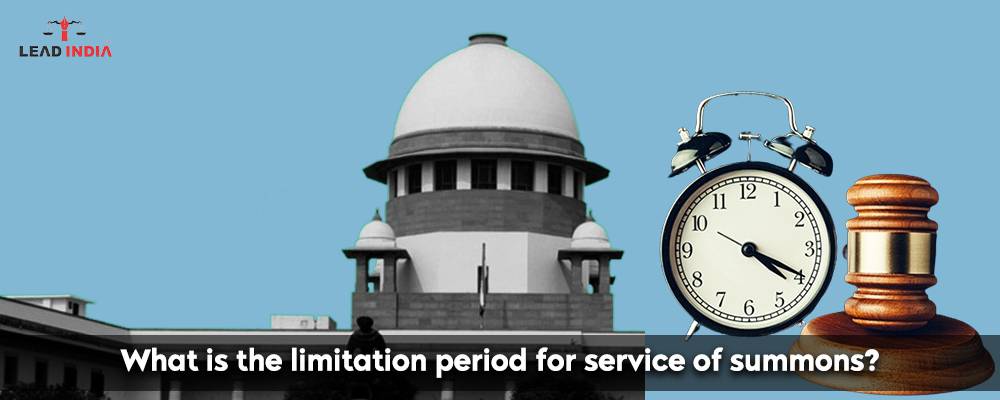Serving summons is an essential aspect of the legal system in India since it allows for the initiation of legal action and guarantees that all parties are properly informed about the case. The serving of a summons is subject to several regulations and restrictions, just like any other legal procedure.
Need A Legal Advice
The internet is not a lawyer and neither are you. Talk to a real lawyer about your legal issue

Service of Summons: About
- A summons is a formal document that informs a person that they are the subject of a legal action. It is an official notice from the court to the party, requesting that they appear in person or reply within a certain amount of time. A crucial component of due process is the proper serving of summons, which guarantees that people receive enough notice and a chance to defend themselves in court.
- In India, the main law governing summons service is the Code of Civil Procedure, 1908. The service of summonses is addressed in detail in Section 27 of the Civil Procedure Code,1973. Orders V and XXIX also provide specific guidelines for the issuing and serving of summonses.
Limitation Period of Summons
- The statute of limitations for serving a summons is not standard and differs between states. Certain legal systems and even categories of cases within a jurisdiction may have particular regulations controlling the amount of time that a summons has to be delivered. This period typically lasts between 30 to 120 days, though certain jurisdictions may have shorter or longer periods.
- However, the concept of limitation is inherent in the legal system to ensure that actions are brought within a reasonable time, preventing the parties from facing undue delays in the legal process. The limitation period for the service of summons can be inferred from the general principles of limitation as laid down in the Limitation Act, 1963.
The Limitation Act of 1963: About
- The Limitation Act, 1963, is a comprehensive legislation that prescribes the limitation period for various civil and criminal actions. While it does not explicitly address the limitation period for the service of summons, it is crucial to consider the general principles of limitation outlined in the Act.
- Section 3 of the Limitation Act stipulates that a suit, appeal, or application must be instituted within the prescribed period. The period begins to run from the date when the right to sue accrues. However, in cases where the right to sue is not specifically provided for, the period begins from the date when the plaintiff or appellant has the knowledge of the accrual of the right.
Application of Limitation Principles to Service of Summons
- In the context of service of summons, the right to sue can be linked to the date of filing the suit or initiating legal proceedings. The limitation period for service of summons, therefore, can be inferred from the date of filing the suit. Once the suit is filed, it becomes imperative to serve the summons on the defendant within a reasonable time.
- The principles of limitation, as outlined in the Limitation Act, ensure that parties do not unduly delay the legal process. This is crucial for maintaining the integrity of the judicial system, preventing unnecessary delays that could adversely affect the rights and interests of the parties involved.
Challenges and Exceptions
- While the general principles of limitation provide a framework, there can be challenges and exceptions in the context of the service of summons. Practical difficulties, such as locating the defendant or facing obstacles in effecting service, may arise. In such cases, the court may exercise discretion and consider the reasons for the delay in service.
- The court has the authority to condone delay in appropriate cases, especially when there are valid reasons for not serving the summons within the usual timeframe. However, the burden lies on the party seeking condonation to establish sufficient cause for the delay. The court will evaluate the circumstances and determine whether there is a genuine and justifiable reason for the delay in service.
Legal professionals, litigants, and the judiciary must all understand how crucial prompt summons service is. While there may be obstacles and exceptions, upholding the values of justice and fairness should be the main objective. Continuous evaluation and modification of these procedures will help to create a more just and efficient legal system in India as the legal landscape changes.
One can talk to a lawyer from Lead India for any kind of legal support. In India, free legal advice online can be obtained at Lead India. Along with receiving free legal advice online, one can also ask questions to the experts online free through Lead India.




